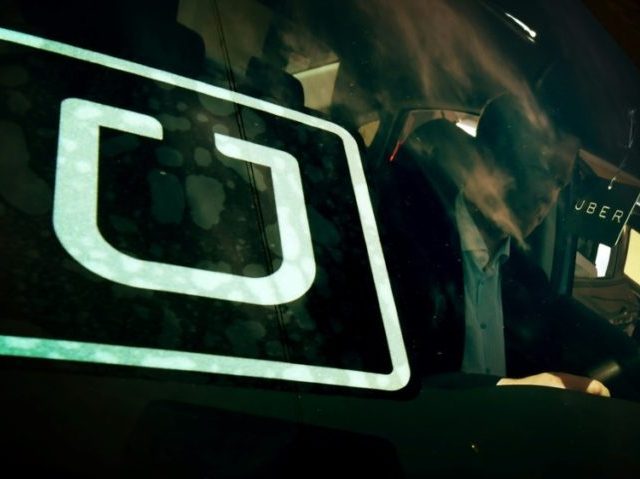Uber reportedly claimed in a letter to the FTC that their drivers earned less than Uber’s advertised rates because they were choosing not to drive enough.
Gizmodo reports that a letter from Uber to the Federal Trade Commission, obtained by Gizmodo under the Freedom of Information Act, claims that the reason many Uber drivers are failing to earn the incomes advertised by Uber is that drivers purposefully choose not to drive enough to reach those rates. The FTC claimed in 2015 that Uber had been making “false, misleading, or unsubstantiated claims regarding driver earnings” on their website and in ads the company posted on Craigslist. At the time, Uber claimed that drivers in New York earned a median $90,000 a year while drivers in San Francisco earned $74,000 a year.
According to the FTC, less than ten percent of Uber drivers in those cities earned those advertised incomes. New York drivers were earning somewhere in the range of $61,000 annually, while San Francisco drivers were earning $53,000. The FTC also claimed that Uber was misleading drivers on the financing options they offered, the FTC’s claims resulted in Uber paying $20 million to settle the matter. The FTC stated that some of this money would be refunded to Uber drivers.
In the defensive letter sent by Uber to the FTC on November 7th, 2016, just two months before the settlement was announced, Uber claimed that their advertised rates were correct and that drivers could make that much money but chose not to by driving less. Uber asked for the letter to be kept confidential, an unsurprising request given how the letter reveals the company’s true opinion of their own drivers. Andrew Smith and John Graubert, lawyers at Covington & Burling who represented Uber during the inquiry stated, “On reflection we trust you will agree that no enforcement action is warranted. We see no basis for the central allegation that potential drivers were misled by earnings claims into taking on auto leases or purchases that were more expensive than originally advertised by Uber.”
The letter claimed that because Uber drivers are listed as independent contractors and not employees, the company could not be held responsible for the amount of money the drivers make and that if the drivers were not making the figure advertised by Uber, that was through their failure to drive for longer periods of time. “It bears emphasis that keeping prices low for riders requires a steady supply of drivers to meet their demand. Yet prohibiting Uber from advertising earnings that drivers can realistically expect to achieve — simply because those earnings exceed the earnings of drivers whose choices cause them to earn less — handicaps Uber in maintaining that supply,” stated Smith and Graubert.
Bhairavi Desai, the executive director of the New York Taxi Workers Alliance, which has sued Uber in an attempt to have the company classify their drivers as employees, said that the arguments in the letter were not shocking given how Uber has discussed their own workforce in the past. “What’s really interesting is that the claim Uber usually makes is they’re independent contractors because they can be flexible. Here Uber’s claim is they are free to earn whatever they can. The only thing that separates a driver is the level of laziness,” Desai said. “When drivers face the consequences of the business model, they say it’s because the drivers are lazy or have wrong expectations.”
In the letter, Smith and Graubert claimed that Uber shouldn’t face financial penalties for misleading drivers as they don’t believe the company has done so, “It would make no sense to give additional compensation to those drivers who earned less, as there are myriad reasons all within the control of the driver why that may be the case. Many drivers intentionally limit their hours and acceptance of trips for personal reasons, and a further payment would be entirely a windfall,” they stated.
Desai disagreed that the payment would be a windfall saying, “If Uber was required to compensate drivers who earned less than promised, the idea that Uber would call that compensation a windfall, that’s just outrageous. These are people who work long shifts and long weeks, with the expectation of pay the company has promised them,” she explained. Desai said that Uber drivers should take note of how the company views them and that, “Any Uber driver that reads it would feel really betrayed by the company, that this is how they’re talked about behind their backs.”
Read the letter in its entirety at Gizmodo.
Lucas Nolan is a reporter for Breitbart News covering issues of free speech and online censorship. Follow him on Twitter @LucasNolan_ or email him at lnolan@breitbart.com.

COMMENTS
Please let us know if you're having issues with commenting.